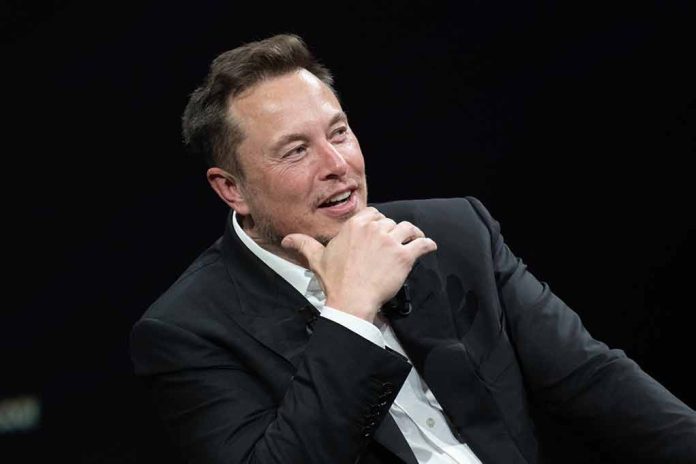
Elon Musk challenges President Trump’s European tariff plan, calling instead for zero tariffs and greater freedom of movement between the United States and Europe.
Key Takeaways
- Musk is advocating for a zero-tariff trade zone between the US and Europe, contrasting with Trump’s recently announced 20% tariff on EU products.
- Trump’s universal baseline 10% tariff, with higher rates for trade surplus countries, has caused market uncertainty and a drop in Tesla stock.
- As head of the Department of Government Efficiency, Musk publicly criticized White House trade adviser Peter Navarro over the tariff strategy.
- Musk supports greater freedom of movement for workers between the US and Europe, a position that differs from typical right-wing immigration stances.
- Italian officials have called for de-escalation rather than retaliatory measures in response to Trump’s tariff announcements.
Musk Advocates for Zero Tariffs with Europe
Elon Musk has publicly called for the elimination of tariffs between the United States and Europe, putting him at odds with President Trump’s recent trade policy announcements. Musk’s position emerged after Trump unveiled a universal 10% tariff on imports, with an elevated 20% duty specifically targeting European Union products due to the EU’s trade surplus with America. This stance represents a significant divergence from the administration’s current trade approach, though Musk continues his role leading Trump’s Department of Government Efficiency initiative to reduce bureaucratic waste.
During a video appearance at the League Party congress in Florence, hosted by Italy’s far-right leader Matteo Salvini, Musk outlined his vision for US-European economic relations. His comments come during a period of heightened trade tensions, with markets reacting negatively to the tariff announcements. Tesla stock specifically saw declines as investors worried about potential impacts on the company’s international supply chain and manufacturing operations.
Musk Hopes for ‘Zero Tariff Situation’ Between US, Europe | The Epoch Times https://t.co/oMikc5Nwjt
— 𝔇𝔢𝔣𝔢𝔫𝔰𝔬𝔯𝔣𝔦𝔡𝔢𝔩𝔦𝔰 (@MrMNelsonJr) April 7, 2025
Clash with Trump Administration Officials
The conflict between Musk’s free trade stance and the administration’s policy became apparent when he criticized White House trade adviser Peter Navarro regarding the tariff measures. Navarro responded by suggesting Musk’s position stems from protecting his own business interests, particularly noting Tesla’s reliance on international supply chains. This public disagreement highlights potential fractures within Trump’s advisory circle on economic policy direction, though Musk’s temporary role as a special government employee limits his official capacity to 130 days.
“I hope it’s agreed that both Europe and the United States should move ideally, in my view, to a zero-tariff situation, effectively creating a free trade zone between Europe and North America,” said Musk.
Musk has previously expressed caution about tariffs, stating, “I think you need to be careful with tariffs,” highlighting concerns about potential supply chain disruptions. His stance reflects broader business community worries about how protectionist policies might affect global trade networks and manufacturing costs. The administration has yet to issue an official response to Musk’s public comments, creating uncertainty about how the disagreement might influence future trade policy directions.
Free Movement of Workers and International Reactions
Beyond tariffs, Musk also advocated for greater freedom of movement for workers between the US and Europe. This position stands in contrast to much of the immigration rhetoric often associated with right-wing politics, despite Musk’s growing connections with far-right European political figures. His remarks supporting worker mobility reflect his long-standing belief in the importance of talent mobility for innovation and economic growth across technologically advanced economies.
“If people wish to work in Europe or wish to work in North America, they should be allowed to do so, in my view,” he said.
Italy’s Economy Minister has urged caution in response to Trump’s tariff announcements, calling for de-escalation rather than retaliatory measures. This reaction demonstrates the international concerns about potential trade wars that could harm already fragile post-pandemic economic recovery efforts. European officials are reportedly strategizing their response while hoping for negotiated solutions that might prevent escalation into a broader trade conflict that would damage businesses and consumers on both sides of the Atlantic.
Sources:
- Elon Musk pushes for US–Europe zero-tariff zone amid growing far-right ties – The Economic Times
- Musk Hopes for ‘Zero Tariff Situation’ Between US, Europe | The Epoch Times
- Elon Musk says he wants ‘zero’ tariffs between the US and Europe



